Enigmatic, mysterious, mystical - despite many years of research, many questions remain open at Chile's Easter Island. Why do the Moai, who are placed along the coast, all look to the interior of the island, with the extension of their line of sight intersecting at about a point? Did aliens land here? It becomes a bit clearer when using proven methods of age assessment. So it is likely that the colossal stone figures are not older than 1500 years. Their original number is estimated at over 1000, of which in the Archaeological Survey and Statue Project from 1969 to 1976 a total of 887 statues were cataloged.
However, the purpose of Moai is still controversial. A current hypothesis is that the Moai represent high-ranking and revered personalities (such as chiefs) of the islanders and act as a link between this world and the otherworldly. However, it is clear that the wasteful use of the limited resources of the island (especially wood) for the production of Moai has led to the demise of its population. The island is of volcanic origin, three volcanoes (Poike 2.5 million years ago, Rano Kau 1 million years ago and Terevaka 240,000 years ago) rose above the sea surface and created the island. The volcanic activity ended 2000 to 3000 years ago. The island is rather small with approximately 180 square kilometers.
The Easter Island is located about 3800 km from the South American Pacific coast of Chile and can be reached from Santiago in about five hours by air. In 2000, when we visited Easter Island, the island was not a tourist destination because of travel expenses. All the more surprised we were on the descent from the extinct volcano crater "Rano Raraku" when we saw two hikers appear in the distance, who came towards us and also called in German. "Is there any cold beer up there?" and that also in the familiar Ruhr dialect :-) - that's how we got to know Bochum our today's friends Renate and Jürgen from Herne. The world is small :-).

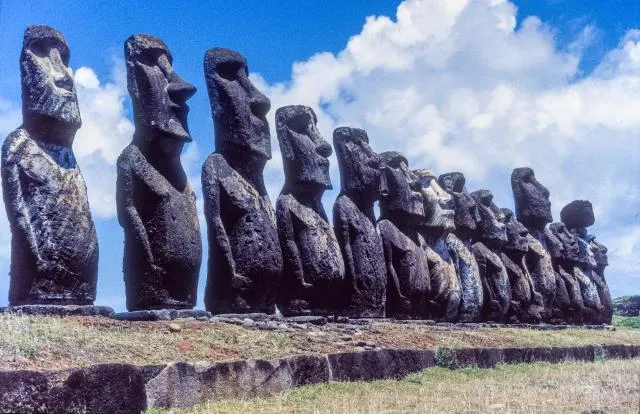
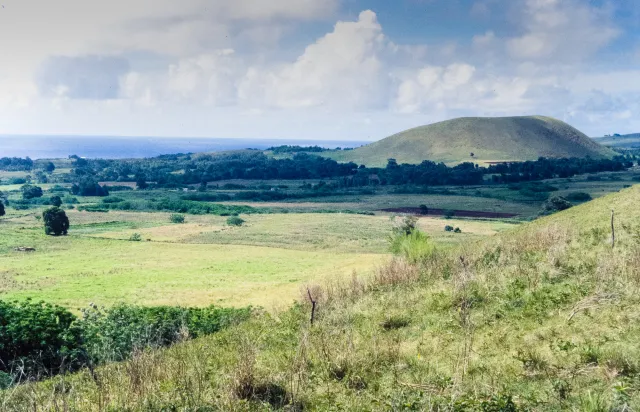
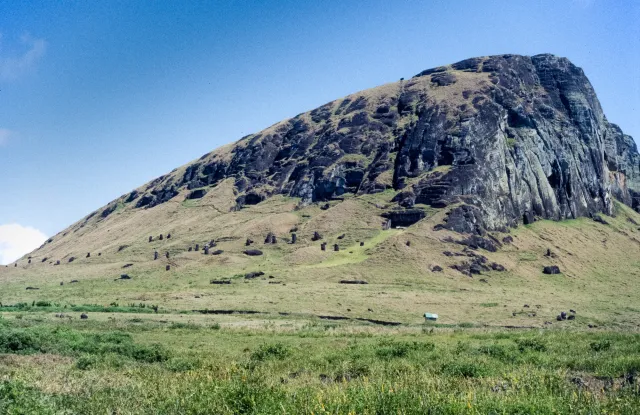
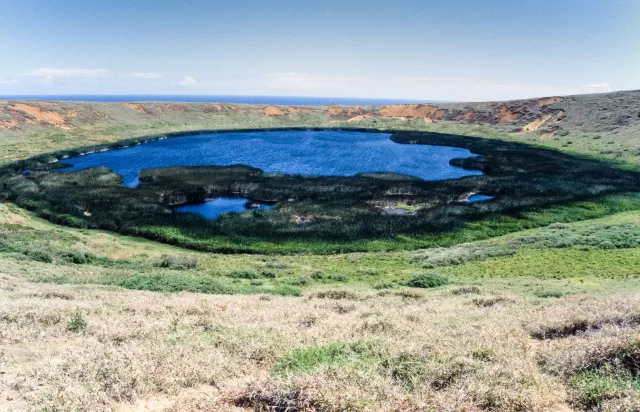
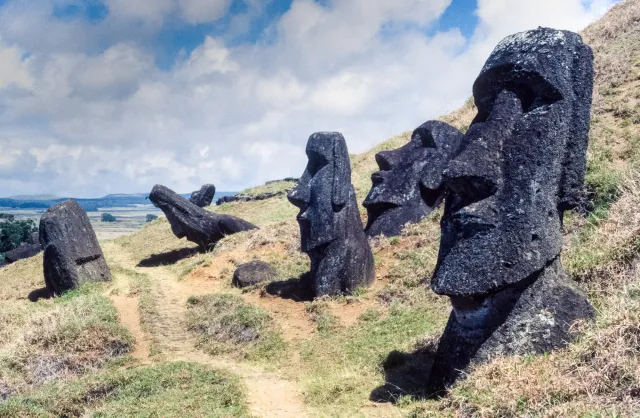
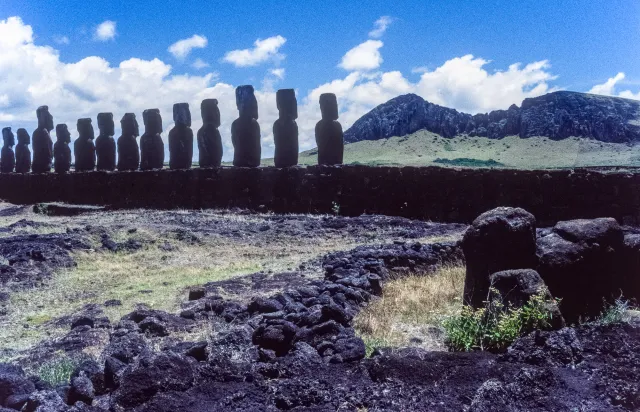
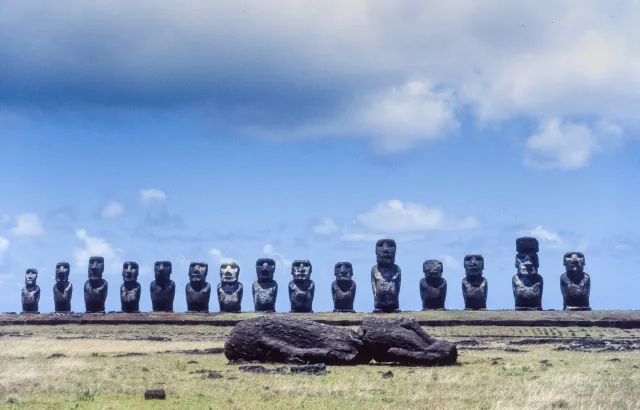
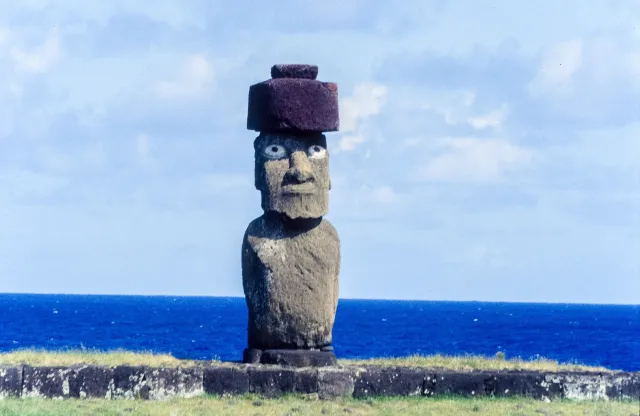
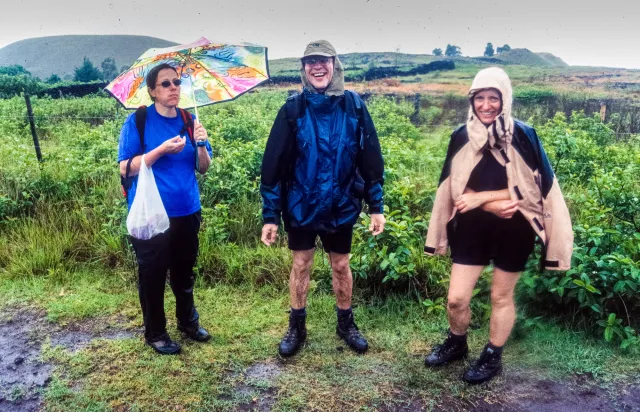
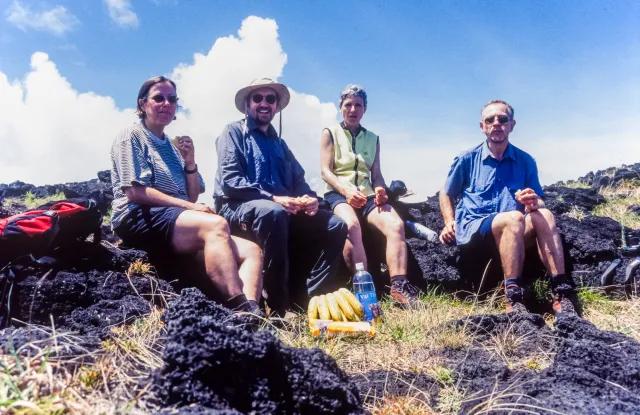
Comments